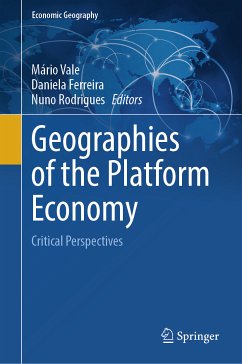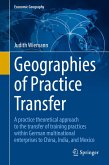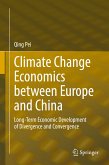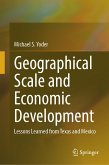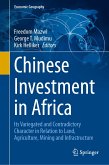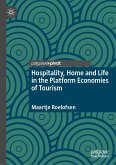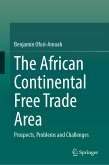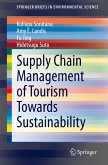This book provides a wider understanding of the geographies of the platform economy, focusing on the critical perspectives that have emerged on this new economic and digital context.
Technological development, particularly the emergence of big data in combination with platforms, additive manufacturing, advanced robotics, machine learning and the internet of things, has created conditions for the appearance of a new economic context predominantly based on new forms of services. This new economic context has been described as the platform economy or platform capitalism. Other designations have also appeared to describe particular consequences of this new phenomena, such as the gig economy or the sharing economy.
There is a significant diversity of scientific fields that are studying topics related to the platform economy. Several studies have emerged from different fields, including, but not limited to, geography, economy, sociology, information science, management, marketing, or the humanities. However, geography has become an important field to understand the platform economy given its critical position over the economic, cultural, and social issues that stem from this new economic context. The purpose of this book is to approach these discussions and offer a critical view of the platform economy from the perspective of geography, stemming from the different subfields of the discipline and not restricted to what has been referred to as Digital Geography.
This book will appeal to scholars, undergraduate and postgraduate students in the social sciences. It will be particularly relevant to those with research interests in digital geographies and economic geography, economics and business.
Dieser Download kann aus rechtlichen Gründen nur mit Rechnungsadresse in A, B, BG, CY, CZ, D, DK, EW, E, FIN, F, GR, HR, H, IRL, I, LT, L, LR, M, NL, PL, P, R, S, SLO, SK ausgeliefert werden.

